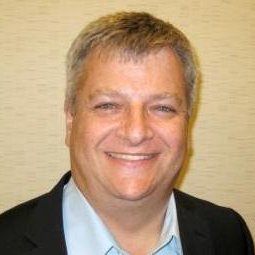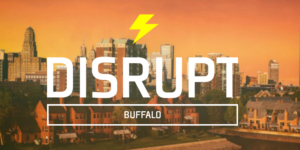
 Jeff is a Director within the People Analytics practice at PricewaterhouseCoopers’ LLP (PwC). He has over over fifteen years of executive consulting experience in employee surveys, leadership development, and HR research and assessment-based change.
Jeff is a Director within the People Analytics practice at PricewaterhouseCoopers’ LLP (PwC). He has over over fifteen years of executive consulting experience in employee surveys, leadership development, and HR research and assessment-based change.
Jeff has worked with clients across industries, including large global organizations as well as mid-size companies, creating survey programs that are aligned with and help drive companies’ strategy and vision, using survey data for advanced HR research (e.g., linkage to business metrics), and assessment-based development for leaders and managers. He is a regular presenter at numerous professional conferences as well as published extensively in both business periodicals and scientific journals, and co-edited a book on global HR practices.
Jeff holds a Ph.D. in Industrial/Organizational Psychology from Ohio University and a BA in Psychology from Lawrence University.
It’s event day, and Jeff took some time to speak with us before the sold out Buffalo DisruptHR, Jeff shares with us his perspective on participating in this inaugural event.
Ediitor: Tell us about yourself – your career history and how to came to be at your current role
Jeff: No one decides as a child they want to grow up to be an I/O psychologist, but as I was trying to figure out in college what I could do in psychology that didn’t involve couches or rats, I met an I/O psychologist by chance and I was hooked. After completing my graduate studies (PhD at Ohio University), I began working in Chicago at London House, a selection test publisher, developing custom tests, doing validation studies, and being the guinea pig for this newfangled technology called “PowerPoint.” My work at London House gave me a taste of organizational assessments, and I found that I really like looking at the aggregate more than the individual. Because of my wife, who is from WNY, we moved to Buffalo, where I got a job with a small firm in Buffalo, NY that focused on family businesses, and gave me the opportunity to look at assessments from the other side – actual application and interpretation. From there I was hired at Genesee Survey Services (now CEB) in Rochester, NY and I finally felt I had a home. Loved working with employee surveys – engagement studies and the like, and after 7 years at Genesee doing surveys for companies like GE, Xerox, The Gap, The Home Depot, Raytheon, and HP, I was hired to oversee the survey consulting practice at Kenexa. So packed up the family and moved to Lincoln, NE and helped the upstart grow. My focus there was large, global, and complex survey and employee research – and led efforts with companies like HSBC, Zurich, CapGemini, Philips, ING Bank, Ernst & Young, Kohler, and a place called PricewaterhouseCoopers (PwC). These projects gave me a wonderful opportunity to travel the world, meet some impressive leaders, and create large-scale change that had a positive impact on employees and the business. After Kenexa was acquired by IBM, I had the flexibility to relocate back to Buffalo, and on the way was offered a position as Director in PwC’s People Analytics practice – where I have been the last two years. The focus is stronger on using employee surveys (including onboarding and exit, as well as engagement) as a foundation for HR analytics, and using surveys to more directly influence and drive business strategy. In addition to helping grow our business, client work, I am also overseeing our thought leadership in this space as well as providing direction for PwC’s own engagement, exit, and onboarding programs. I still travel a lot (although more domestically now) and enjoy the challenge of helping make organizations better places to work, and find those unique paths that help organization’s reach their talent management and business goals.
Editor: What does your company do?
Jeff: PwC is a network of firms in 157 countries with more than 208,000 people who are committed to delivering quality in assurance, advisory and tax services. Our purpose is to build trust in society and solve important problems. PwC People Analytics practice provides leading edge consulting and support for a number of HR analytics needs, including workforce surveys, talent management assessment, Saratoga benchmarking ,predictive analytics and modeling, HR dashboards and metrics visualization, and general HR analytics program roadmap definition. Our People Analytics practice within PwC includes more than 200 workforce research practitioners, including PhD-level I/O psychologists, statisticians, and economists as well as technology developers. who are joined by more than 6,000 HR consultants that comprise our Global Human Resource Services practice.
Editor: Any upcoming product launches or initiatives you’d like to highlight to our audience?
Jeff: We have just released our latest build of START (Survey Taking Action and Reporting Tool), which is an online reporting tool that is configured to help managers make the most of their survey results and action plans, as well as provide leaders oversight to what is occurring in their organizations, and allow HR and other stakeholders to do advanced analysis and research with their survey data. The new release brings more flexibility in how the tool can be used at different levels, free text analytics, and greater ease in moving from analysis to action.
We are also about to release Survey Builder, which will provide users to set up, administer, and report any range of pulse surveys, customer service surveys, lifecycle measures, or other short polls that may be desired. In short, Survey Builder gives our clients a lot of control and flexibility in managing and running their continuous listening programs. Because it allows for centralization of data across users, the organization has oversight to the various surveys going on as well as can implement governance over these programs in terms of content (e.g., ask only appropriate items), target (e.g., limit to only new hires or high performers) and participation (e.g., making sure no one gets more than 3 surveys a year).
We are also excited about our Minders app that will be coming out later this year, that will help managers stay mindful about areas they want to become more consistent on. The science that went into this app is part of what my session is about.
Finally, we are just launching our annual Employee Engagement Landscape study. This year’s focus will be on evolving the work experience, and will outline what foundational elements are required to help organizations have more evolved, leading edge work environments for their people. We expect to release the report in late November.
Editor: What does an average work week look like for you?
Jeff: There ain’t no such thing as an average work week. My job involves a lot of pivoting from various tasks and projects, to coaching and supporting my team members, work on thought leadership research, analytics and interpretation for executives, and business leadership activities. A typically week likely will have me flying to meet with clients at some point – either to help shape and define their engagement or work environment research, help leaders with results interpretation, or support action follow through. Else I am on calls talking with prospective clients to understand their needs, and how we might work together. Talking with project teams and helping shape deliverables, as well as coaching individual performance (I love the mentoring part of my job). When I get a chance I do my writing, answer the endless flow of e-mails, and read up on new directions in HR, analytics, or leadership. My projects range from engagement and lifecycle surveys, to competency modeling, multi-rater feedback and talent assessments, and employee research. There is no room for boredom with this job.
Editor: What made you decide to be a speaker at DisruptHR Buffalo?
Jeff: Since moving back to Buffalo two years ago, I have had a lot of travel, and haven’t had a chance to connect with the community here (although my home is in Getzville, my office is in McLean, VA). Saw DisruptHR as a fun opportunity to get “out there” and get to meet some people from the area. Plus, I love the idea of being challenged to share something new and different in the HR space. I think HR can be braver in taking risks and leading innovation, and DisruptHR clearly is encouraging that direction.
Editor: What will you be speaking about at DisruptHR Buffalo?
Jeff: Having been in the employee survey space for a long time, I’m seeing a need to think about survey action planning differently. So much of the evolution in this space has been about technology and content, but the real value is around action. So I started to think what the next step for action planning should be. Through my work and discussions with a lot of great places to work and high performing companies, I’m learning the secret to their success is not that they do something so unique (although there are some unique things they do), but that they do the right things consistently. So will be talking why consistency is important and how to achieve it.
Editor: What are the major learnings that attendees will take from your session?
Jeff: I think I covered this in the above answer, but if they take one thing away, it is that large scale change in organizations can sometimes happen with the simpliest of actions done consistently. And I hope they are inspired to find ways to help nudge their managers into being more consistent with their teams on the things that make the most impact (for their people and for their business).
Editor: You only have 5 minutes to present at DisruptHR Buffalo. What unique challenges and opportunities does this format offer?
Jeff: I’m a verbose guy with a lot of passion for my work. So the challenge is really to get me to focus and really know exactly what I want to say. However, that helps me to really distill my insights and learnings in a simple, visual way. It also breaks away from the usual death by powerpoint by making things so fast paced. I know that it means the evening will provide an exchange of a lot of ideas in a way that people can still absorb the key points.
Editor: Why does Buffalo need an event like DisruptHR?
Jeff: Why not!?! We have a great community, and there is no reason that Buffalo can’t or shouldn’t lead other communities in terms of best practices and innovation in HR, and in business. It is critical to bring new ideas into our regional businesses to help support our long term economic growth and success, which serves everyone.
Editor: Are you attending/speaking at any other HR-related events in the next 6-12 months? If so which ones and why?
Jeff: I present at a number of events annually. I’m likely to present at the annual Society for Industrial/Organizational Psychologists, as well as a few SHRM chapters around the nation. I am also a regular presenter for the Onboarding 2025 workshops, with the next one being held in NYC in November.

